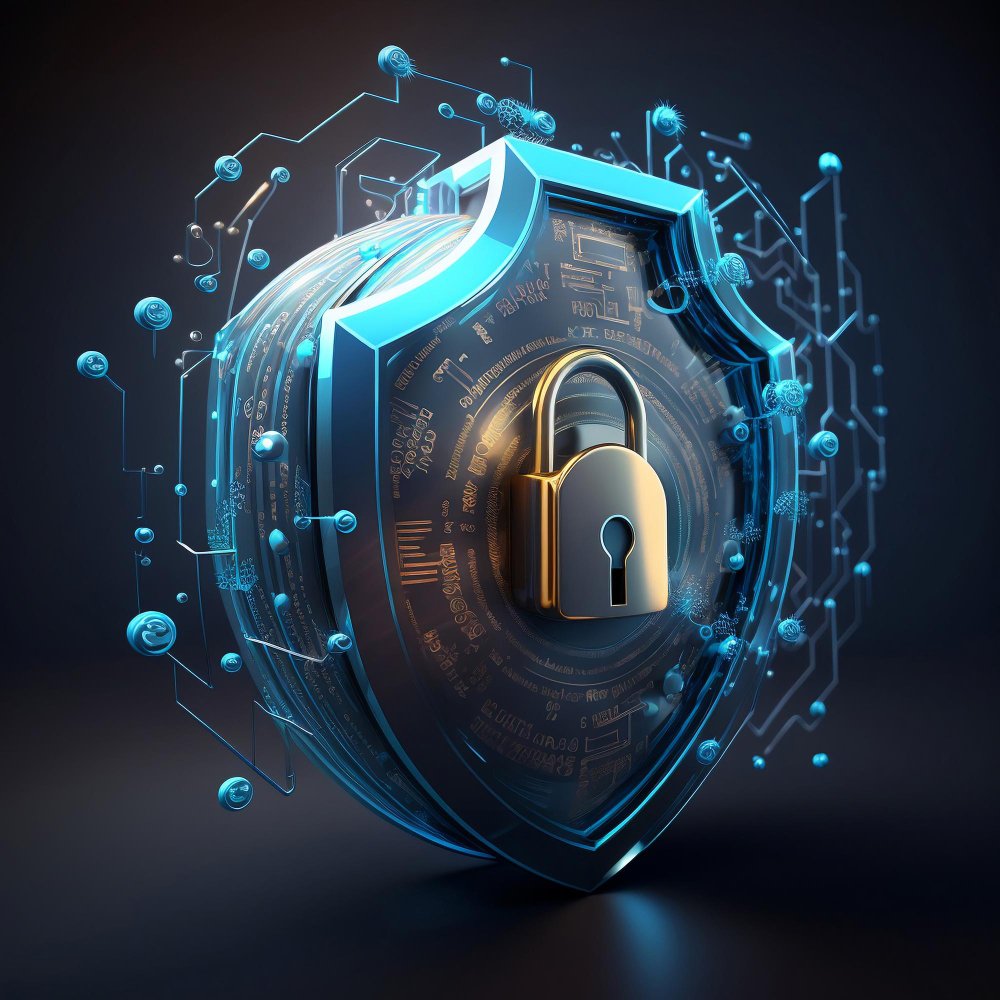Data Security
In an era where data fuels innovation and drives technological advancements, the importance of data security cannot be overstated. As organizations and individuals navigate an ever-expanding digital landscape, the challenges of protecting sensitive information grow more complex. This blog aims to unravel the intricacies of data security, exploring its significance, the evolving threat landscape, and the role that ChatGPT, a powerful language model developed by OpenAI, can play in fortifying the defenses against potential breaches.

Understanding Data Security: A Primer
Data security encompasses a broad set of practices and measures designed to protect digital information from unauthorized access, disclosure, alteration, and destruction. It encompasses both personal and corporate data, spanning financial records, intellectual property, healthcare information, and more. Key components of data security include:
1. Encryption:
Data encryption involves converting information into a code that can only be deciphered by authorized parties. This adds an additional layer of protection, especially during data transmission.2. Access Controls:
Access controls restrict who can view or manipulate data. Implementing strong access policies ensures that only authorized individuals or systems can interact with sensitive information.3. Authentication:
Authentication mechanisms, such as passwords, biometrics, or multi-factor authentication, verify the identity of users or systems attempting to access data.4. Regular Audits and Monitoring:
Continuous monitoring and periodic audits help identify unusual activities or potential security incidents, allowing for proactive responses to emerging threats.5. Data Backups:
Regular backups ensure that data can be restored in the event of accidental deletion, data corruption, or a security breach.The Evolving Threat Landscape
As technology advances, so do the methods employed by malicious actors seeking to compromise data security. Some prevalent threats include:
1. Cyber Attacks:
Cyber attacks, including phishing, malware, and ransomware, remain persistent threats. Phishing attempts aim to trick individuals into divulging sensitive information, while malware can infect systems and compromise data integrity.2. Insider Threats:
Insider threats, whether intentional or unintentional, pose a significant risk. Employees or individuals with access to sensitive information may inadvertently or maliciously compromise data security.3. Advanced Persistent Threats (APTs):
APTs involve targeted, sophisticated attacks with the goal of gaining prolonged access to a system. These attacks often go undetected for extended periods, allowing threat actors to extract valuable data.4. Cloud Security Challenges:
As organizations increasingly rely on cloud services, ensuring the security of data stored in the cloud becomes paramount. Misconfigurations, unauthorized access, and insecure interfaces can lead to breaches.ChatGPT and Data Security: A Synergistic Approach
In the realm of natural language processing, ChatGPT, powered by the GPT architecture, offers more than just conversational capabilities. It can be a valuable ally in enhancing data security through its unique characteristics and applications.
1. Text-based Communication Security:
ChatGPT can assist in developing secure text-based communication systems. By understanding and generating text, it can contribute to the creation of secure messaging platforms, email filters, and content analysis tools to identify potential security threats.2. Secure Code Generation:
ChatGPT has the ability to generate human-like text, making it useful for coding and software development. Secure coding practices are integral to building robust and secure applications. Developers can leverage ChatGPT to assist in generating secure code and identifying potential vulnerabilities.3. Data Handling and Privacy Compliance:
In applications where ChatGPT processes user input, it can be programmed to adhere to strict data handling and privacy compliance standards. Developers can implement measures to anonymize or pseudonymize data, ensuring that sensitive information is handled responsibly.4. Conversational Security Audits:
ChatGPT can contribute to security audits by simulating conversations and interactions to identify potential vulnerabilities. This proactive approach allows organizations to address security concerns before deploying conversational interfaces to the public.5. Context-Aware Security Responses:
In security operations, context is key. ChatGPT’s ability to understand and retain context in conversations can be leveraged to provide context-aware security responses. This ensures that security measures and alerts are relevant and responsive to the evolving threat landscape.Implementing ChatGPT for Enhanced Data Security
Now, let’s explore how ChatGPT can be implemented to enhance data security measures:
1. Secure Chatbots and Virtual Assistants:
Developers can use ChatGPT to build secure chatbots and virtual assistants that adhere to data security best practices. These applications can handle user queries, provide information, and offer assistance while maintaining a focus on data protection.2. Threat Intelligence Analysis:
ChatGPT can be employed for threat intelligence analysis by processing and understanding textual information related to potential security threats. This can aid security analysts in identifying patterns and responding to emerging threats.3. Security Training Simulations:
ChatGPT can be used to simulate security training scenarios, allowing organizations to train employees in recognizing and responding to security threats. These simulations can be tailored to specific industries and threat landscapes.4. Code Security Checks:
Integrate ChatGPT into code security checks to analyze code snippets for potential vulnerabilities. By leveraging the model’s understanding of secure coding practices, developers can enhance their code review processes.5. Secure Document Analysis:
ChatGPT can assist in secure document analysis by understanding and summarizing textual content. This can be particularly useful for legal, compliance, or sensitive document review, ensuring that confidential information is handled appropriately.Conclusion: Building a Secure Future with ChatGPT
As data continues to play a pivotal role in shaping the future, safeguarding its integrity, confidentiality, and availability is non-negotiable. ChatGPT, with its powerful language processing capabilities, has the potential to be a transformative force in the realm of data security. By integrating ChatGPT into applications and systems, developers can leverage its unique attributes to bolster security measures, respond to threats pro
